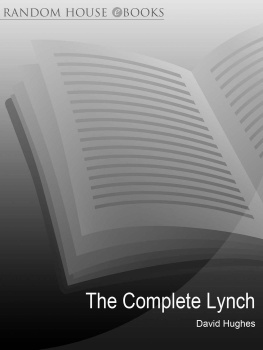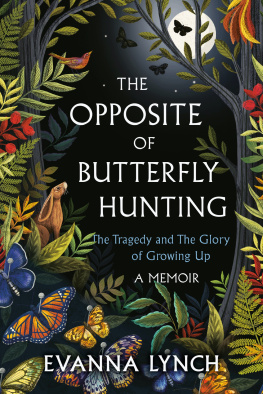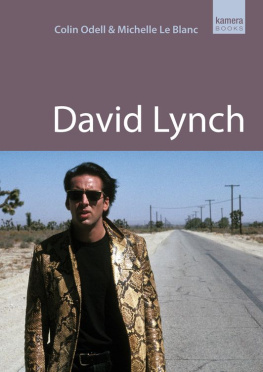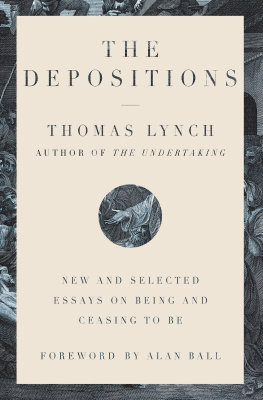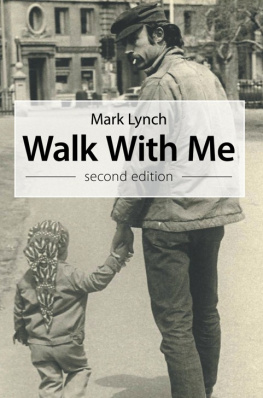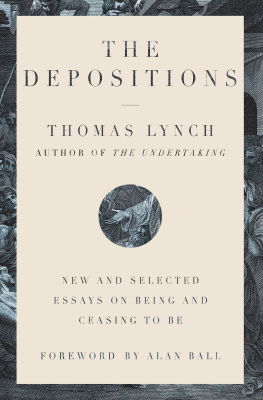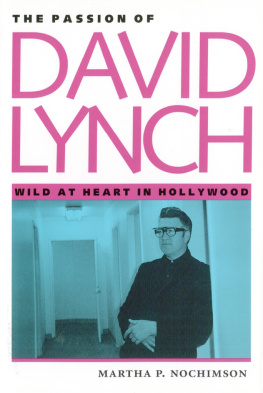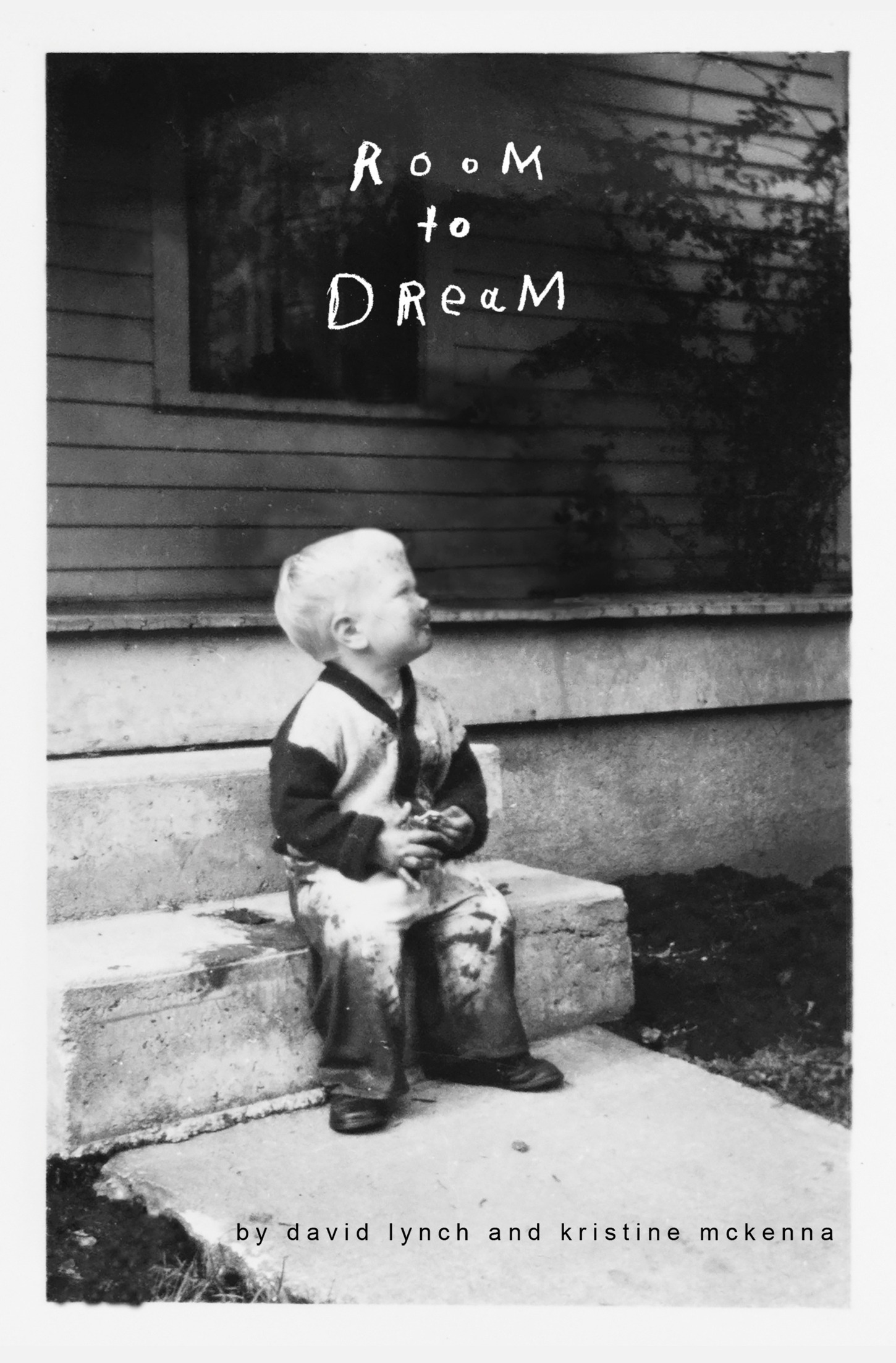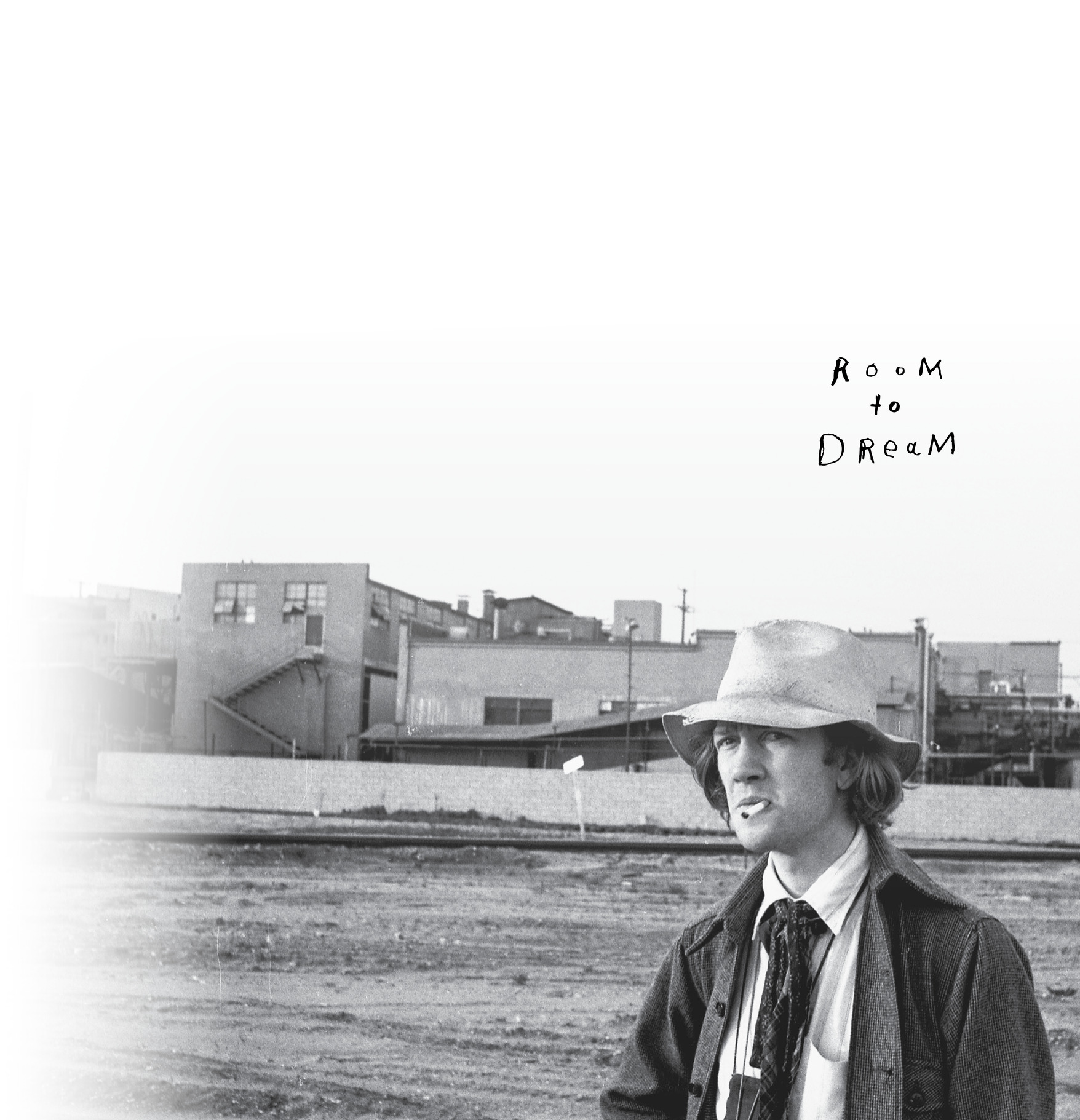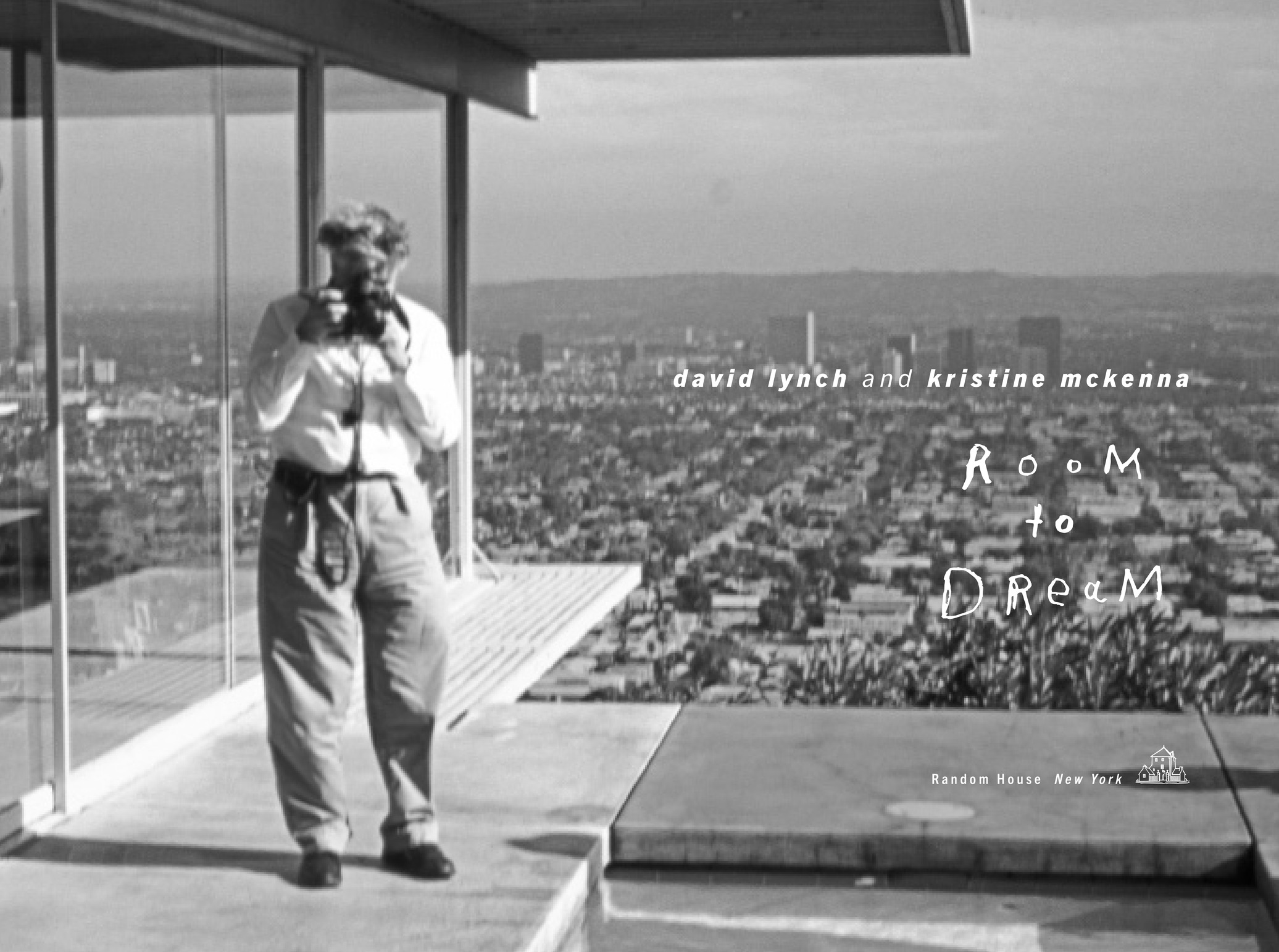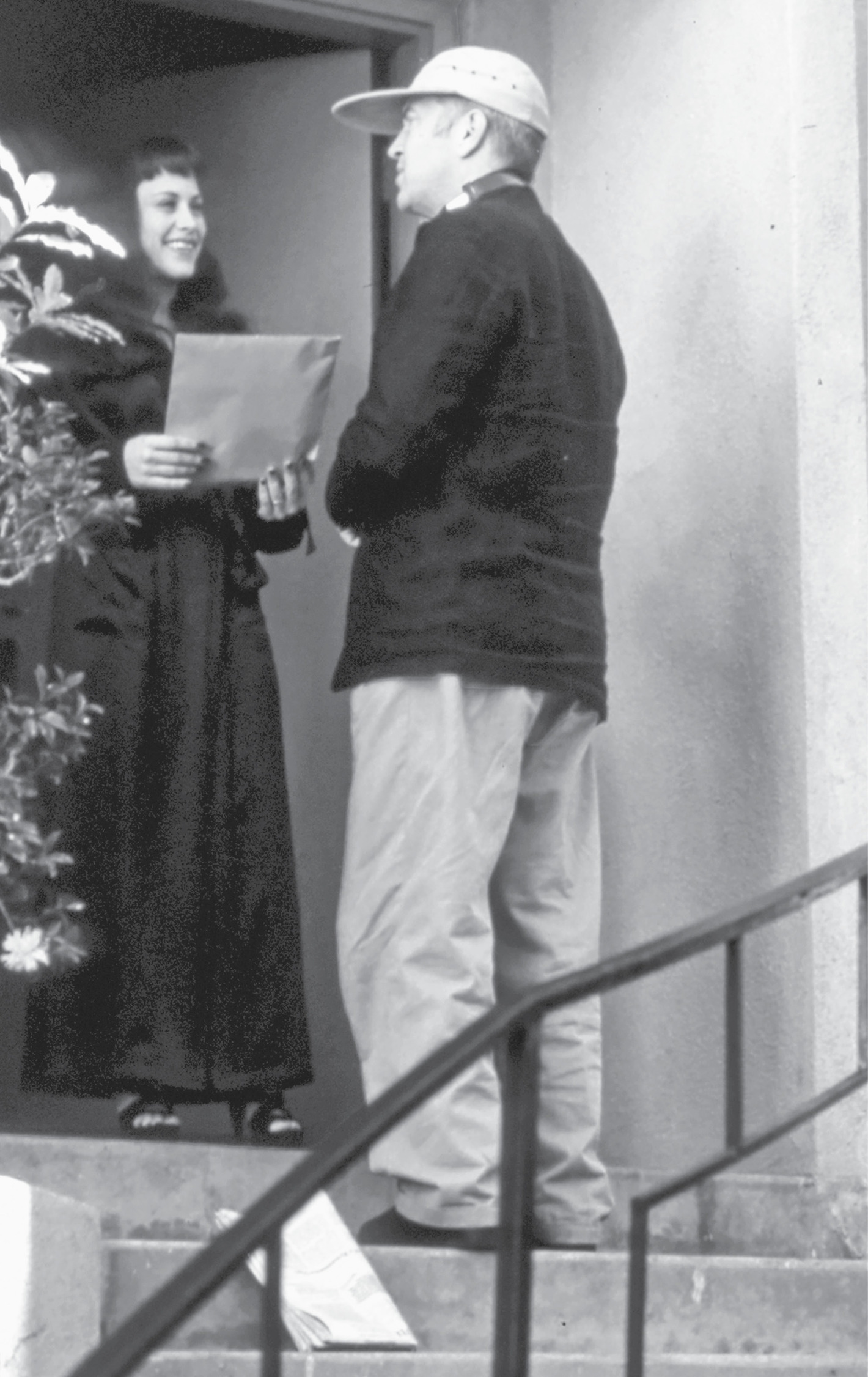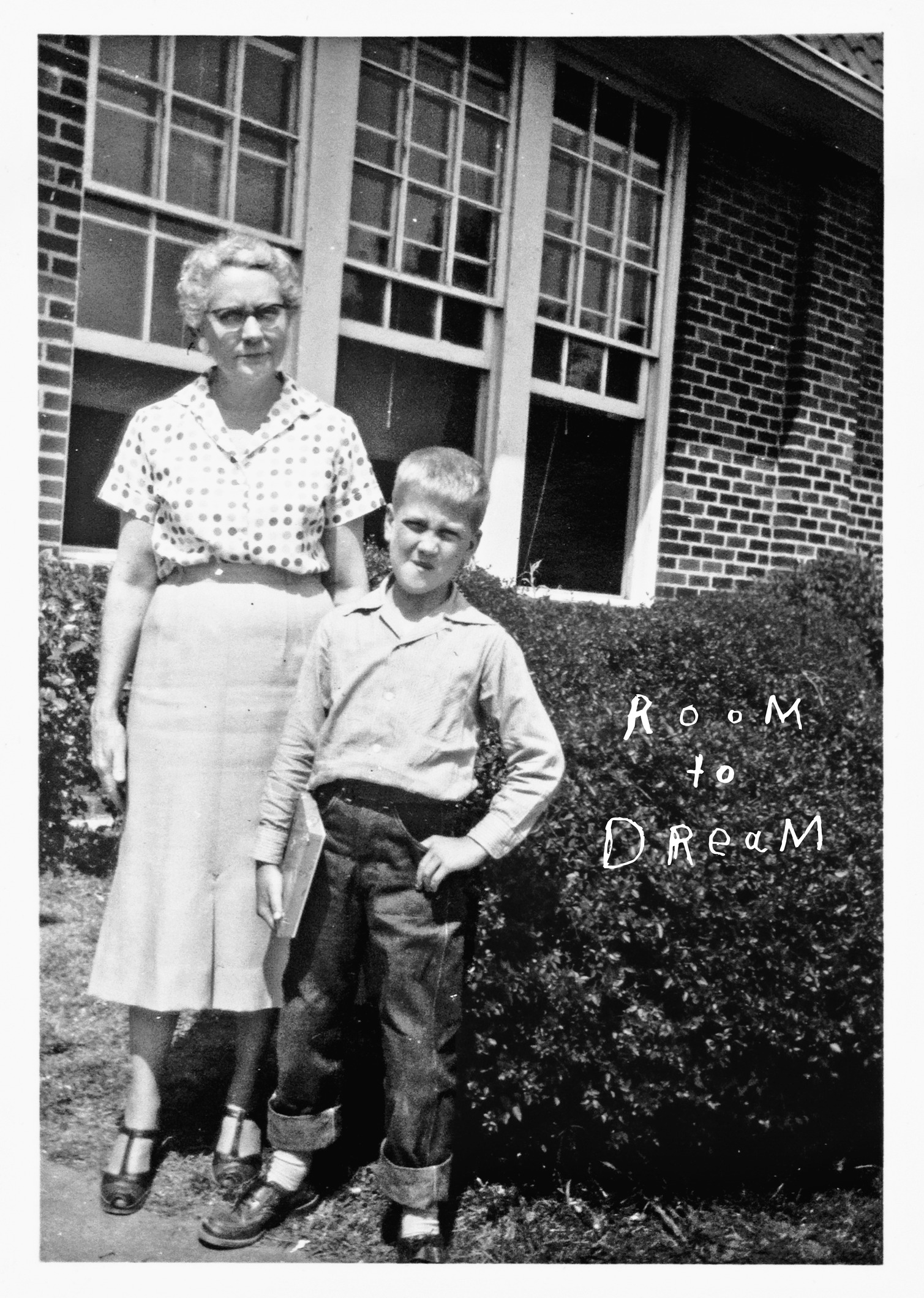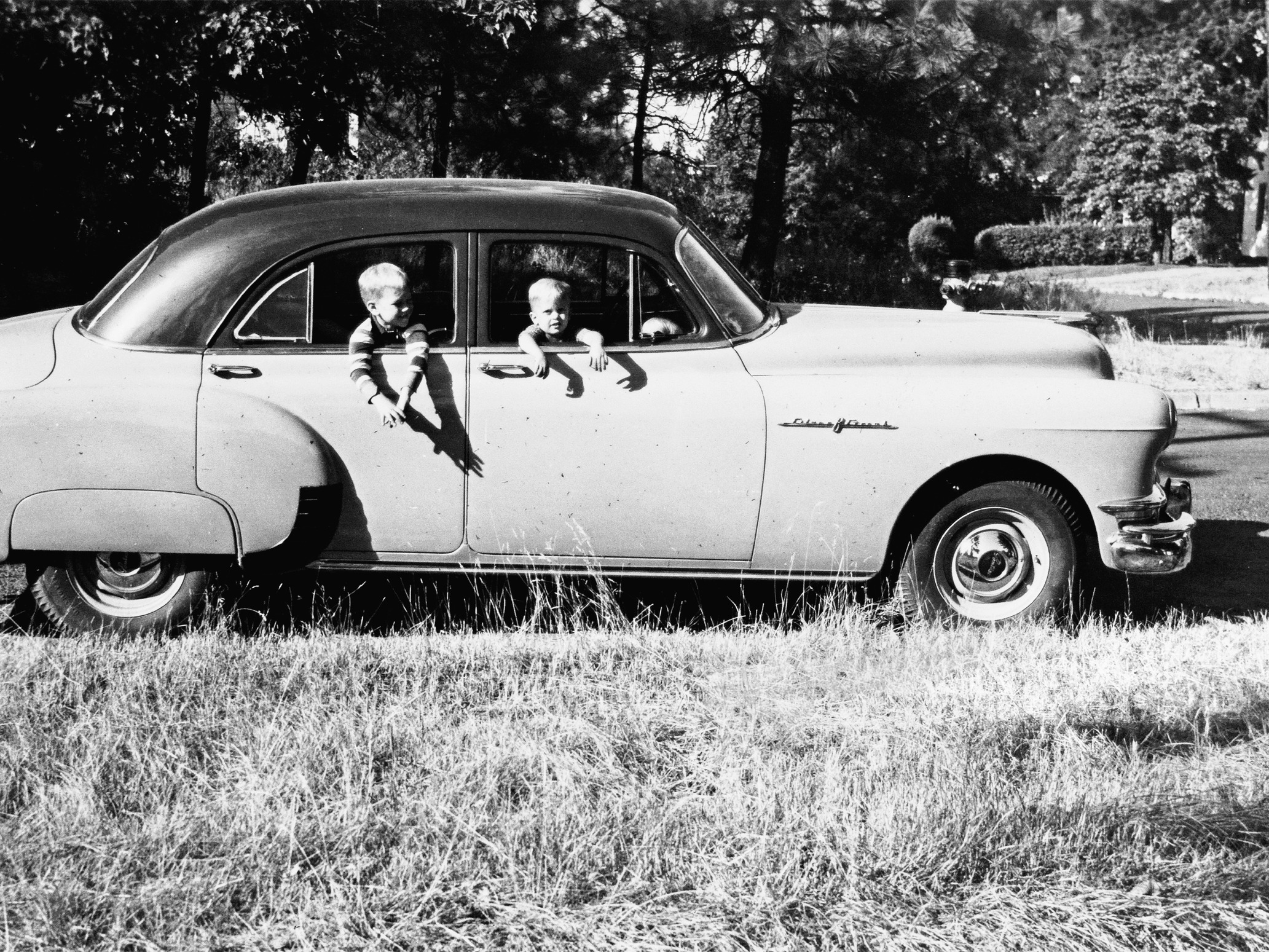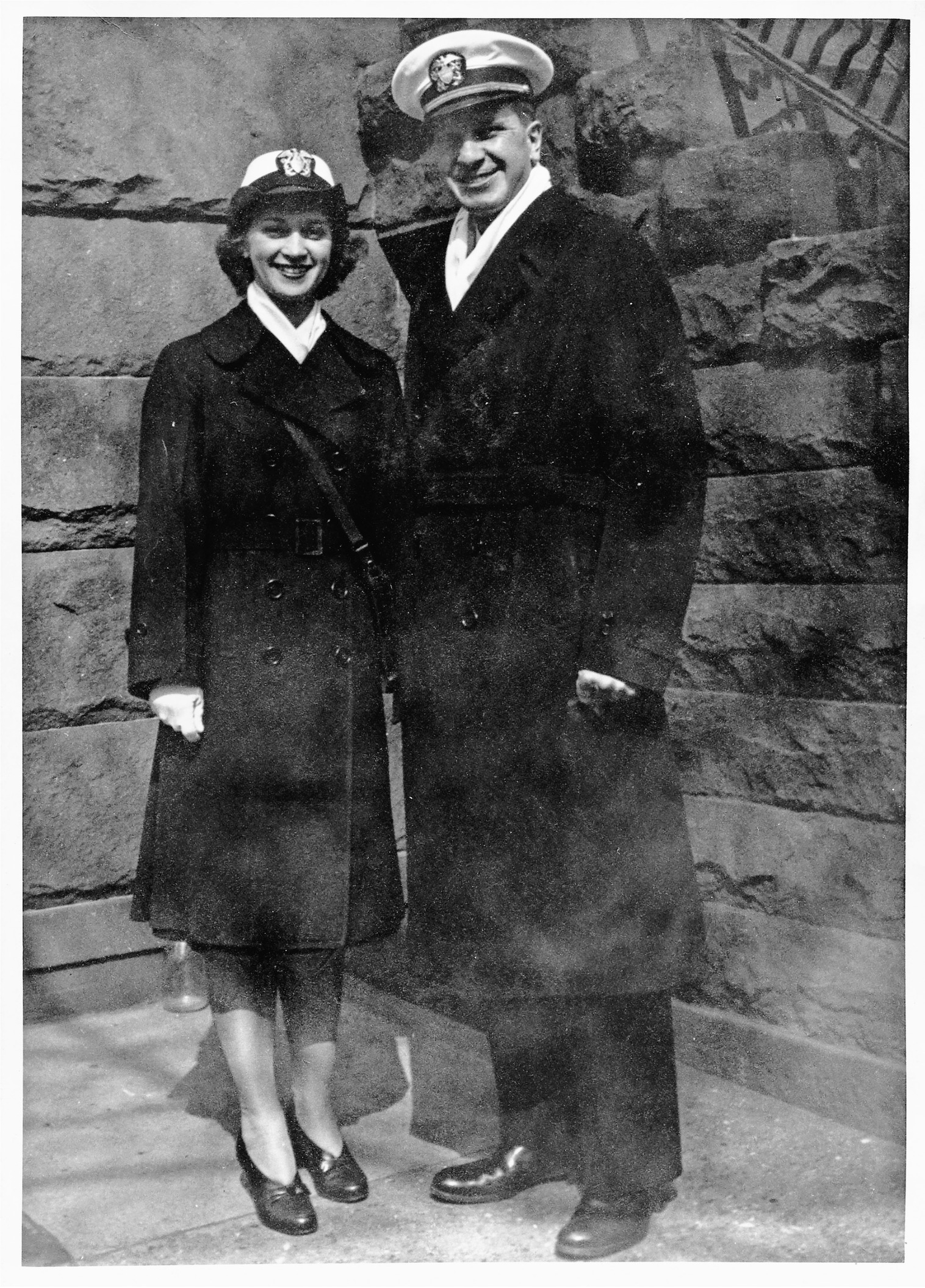All rights reserved.
Published in the United States by Random House, an imprint and division of Penguin Random House LLC, New York.
Photo credits appear on .
R ANDOM H OUSE and the H OUSE colophon are registered trademarks of Penguin Random House LLC.
Names: Lynch, David author. | McKenna, Kristine author.
Title: Room to dream / David Lynch, Kristine McKenna.
Description: New York : Random House, 2018. | Includes bibliographical references.
Identifiers: LCCN 2017058580 | ISBN 9780399589195 (hardback) | ISBN 9780399589201 (ebook)
Subjects: LCSH: Lynch, David, 1946 | Motion picture producers and directorsUnited StatesBiography. | BISAC: BIOGRAPHY & AUTOBIOGRAPHY / Entertainment & Performing Arts. | BIOGRAPHY & AUTOBIOGRAPHY / Personal Memoirs. | ART / Film & Video.
INTRODUCTION
When we decided to write Room to Dream together a few years back there were two things we wanted to achieve. The first was to get as close as we could to producing a definitive biography; that means all the facts, figures, and dates are correct, and all the pertinent participants are present and accounted for. Second, we wanted the voice of the subject to play a prominent role in the narrative.
Toward that end we devised a way of working that some might find strange; our hope, however, is that the reader is able to discern a kind of rhythm in it. First, one of us (Kristine) would write a chapter employing the customary tools of biography, including research and interviews with more than one hundred peoplefamily members, friends, ex-wives, collaborators, actors, and producers. Then, the other (David) would review that chapter, correct any errors or inaccuracies, and produce his own chapter in response using the memories of others to unearth his own. What youre reading here is basically a person having a conversation with his own biography.
No ground rules were laid down and nothing was declared off-limits when we embarked on the book. The many people who graciously agreed to be interviewed were free to tell their version of events as they saw fit. The book is not intended to be an exegesis on the films and artworks that are part of this story; material of that sort is abundantly available elsewhere. This book is a chronicle of things that happened, not an explanation of what those things mean.
As we approached the completion of our collaboration we were both left with the same thought: The book seems short and barely scratches the surface of the story at hand. Human consciousness is too vast to fit between the covers of a book, and every experience has too many facets to count. We aimed to be definitive, but its still merely a glimpse.
DAVID LYNCH & KRISTINE MCKENNA
David Lynchs mother was a city person and his father was from the country. Thats a good place to begin this story, because this is a story of dualities. Its all in such a tender state, all this flesh, and its an imperfect world, Lynch has observed, and that understanding is central to everything hes made. We live in a realm of opposites, a place where good and evil, spirit and matter, faith and reason, innocent love and carnal lust, exist side by side in an uneasy truce; Lynchs work resides in the complicated zone where the beautiful and the damned collide.
Lynchs mother, Edwina Sundholm, was the descendant of Finnish immigrants and grew up in Brooklyn. She was bred on the smoke and soot of cities, the smell of oil and gasoline, artifice and the eradication of nature; these things are an integral part of Lynch and his worldview. His paternal great-grandfather homesteaded land in the wheat country near Colfax, Washington, where his son, Austin Lynch, was born in 1884. Lumber mills and soaring trees, the scent of freshly mowed lawns, starry nighttime skies that only exist far from the citiesthese things are part of Lynch, too.
David Lynchs grandfather became a homesteading wheat farmer like his father, and after meeting at a funeral, Austin and Maude Sullivan, a girl from St. Maries, Idaho, were married. Maude was educated and raised our father to be really motivated, said Lynchs sister, Martha Levacy, of her grandmother, who was the teacher in the one-room schoolhouse on the land she and her husband owned near Highwood, Montana.
Austin and Maude Lynch had three children: David Lynchs father, Donald, was the second, and he was born on December 4th, 1915, in a house without running water or electricity. He lived in a desolate place and he loved trees because there were no trees on the prairie, said Davids brother, John. He was determined not to be a farmer and live on the prairie, so he went into forestry.
Donald Lynch was doing graduate work in entomology at Duke University, in Durham, North Carolina, when he met Edwina Sundholm in 1939. She was there doing undergraduate work with a double major in German and English, and they crossed paths during a walk in the woods; she was impressed by his courtesy when he held back a low-hanging branch to allow her to pass. Both of them served in the navy during World War II, then on January 16th, 1945, they married in a navy chapel on Mare Island, California, twenty-three miles northeast of San Francisco. A short time later, Donald landed a job as a research scientist for the U.S. Department of Agriculture in Missoula, Montana. It was there that he and his wife began building a family.
David Keith Lynch was their first child. Born in Missoula on January 20th, 1946, he was two months old when the family moved to Sandpoint, Idaho, where they spent two years while Donald worked for the Department of Agriculture there. They were living in Sandpoint in 1948 when Davids younger brother, John, was born, but he, too, came into the world in Missoula: Edwina Lynchknown as Sunnyreturned to Missoula to deliver her second child. Later that year the family moved to Spokane, Washington, where Martha was born in 1949. The family spent 1954 in Durham while Donald completed his studies at Duke, returned to Spokane briefly, then settled in Boise, Idaho, in 1955, where they remained until 1960. It was there that David Lynch spent the most significant years of his childhood.


